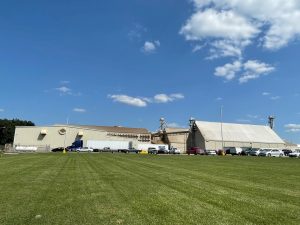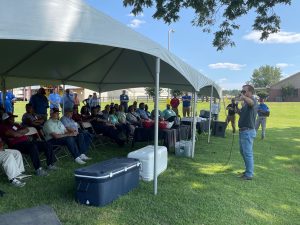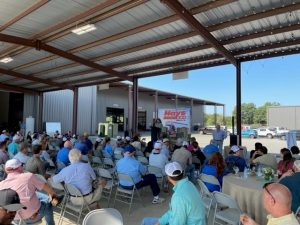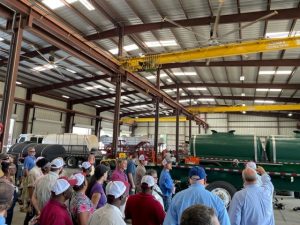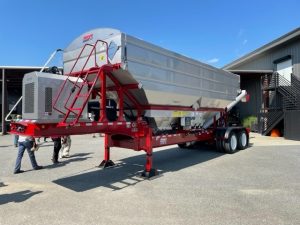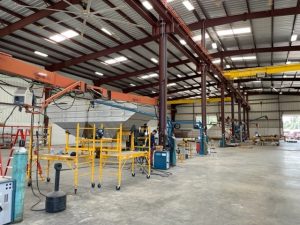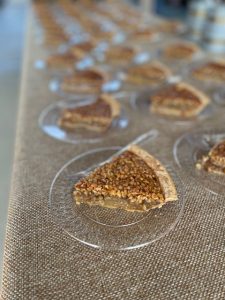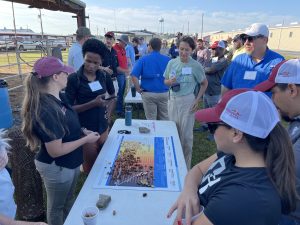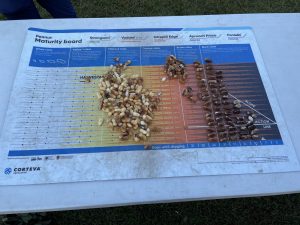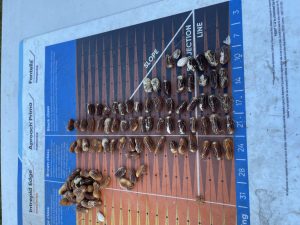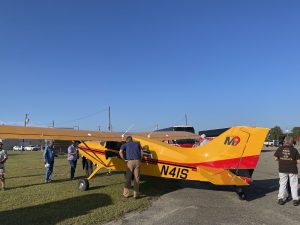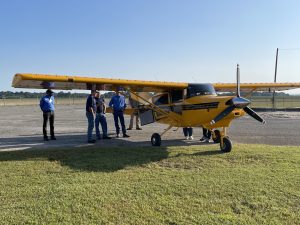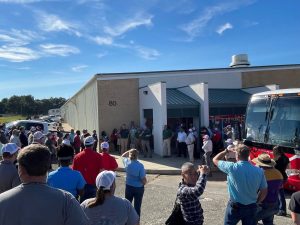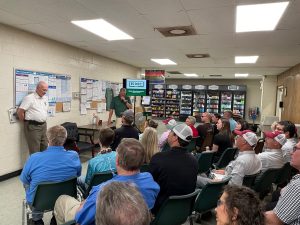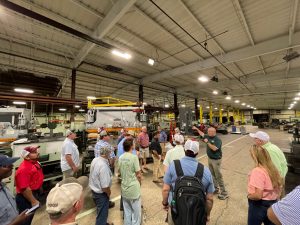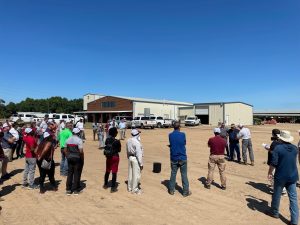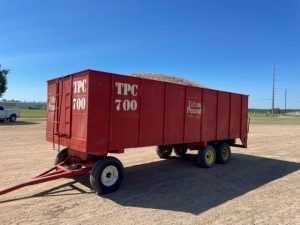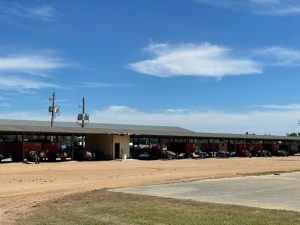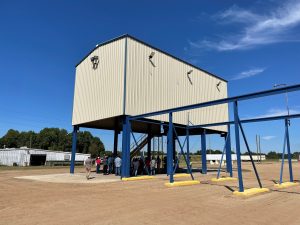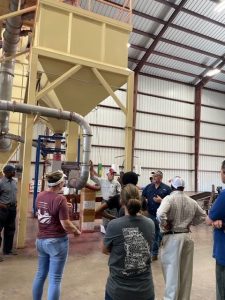Eric Prostko is an extension weed specialist at the University of Georgia and a speaker at the 2022 Georgia Peanut Tour. Prostko spends roughly half of his time working with peanuts and the other fifty percent working on the other crops. Prostko spent his time talking about the importance of weed control and peanut production systems.
He stated that if growers don’t control weeds, it’s very likely that harvesting peanuts will not be an option. That is because it’s a two-step process that requires the inversion process and then the combining process. If weeds are present then it can be very detrimental to that process. Additionally, weeds compete with peanuts for resources like sunlight, nutrients, and water. Weeds will prevent those resources from being allocated to the peanuts and that will affect the yield of the peanuts. The presence of weeds also influences yields by inhibiting the deposition of fungicides. If growers have a lot of weeds in the field, it is harder for fungicide sprays to reach the target, which is the canopy of the of the peanut plant. It is very critical that farmers manage their weeds both from a yield, harvesting, and fungicide standpoint. If growers were to allow weeds to produce seeds in different areas of the crop, then those seeds will be there in subsequent rotations which could then cause a problem.
Prostko conducted his own research where he had two plots, one to highlight peanuts that went untreated and another to highlight peanuts that were treated. The plot that went untreated eventually was so overtaken by pigweed that Prostko had to mow the entire plot due to not being able to get equipment through the plot. He felt that his research was a great example of the results of not treating your crops. His treated plot was on a standard program that is recommended for most growers. The program consists of three herbicides that are applied at planting the around the thirty-day mark, an additional three herbicides are applied.
Prostko feels that farmers in Georgia have not suffered as much as others have in other states such as Tennessee and Arkansas. That is due to taking actions for weed control that growers can’t do in other states. One of the most troublesome weeds growers face is called palmer amaranth and as most people in Georgia would consider it “Public Enemy Number One.” When talking about weeds, it is extremely interesting plant. It can grow up to six or seven feet tall. The female plants can produce up anywhere from 500 000 seed per plant or more. So, it’s extremely competitive and it’s hard to control. Researchers have developed some herbicides, but the species has evolved some resistances to some of the herbicides that growers use so it is very challenging. The plant itself is kind of woody, so it is tough on equipment if it’s left uncontrolled. When it is going through an inverter or going through the combine it can cause some problems. There are many other weeds that are present in the peanut industry. Over the last several years, palmer amaranth has really growers a lot of heartache. Fortunately, for peanuts there are some great programs to manage the weed. If growers implement those programs and with some timely moisture, they can keep it under control.
Prostko has been in Georgia for 23 years and when he first came, this plant was not a problem. Then over time, for various reasons, it has become the number one weed that growers have in not only peanuts but most of our economic crops. Having clean peanut fields is critical to the success of Georgia’s peanut production and a lot of time is spent trying to help the county agents and growers figure out the best ways to manage weeds.

